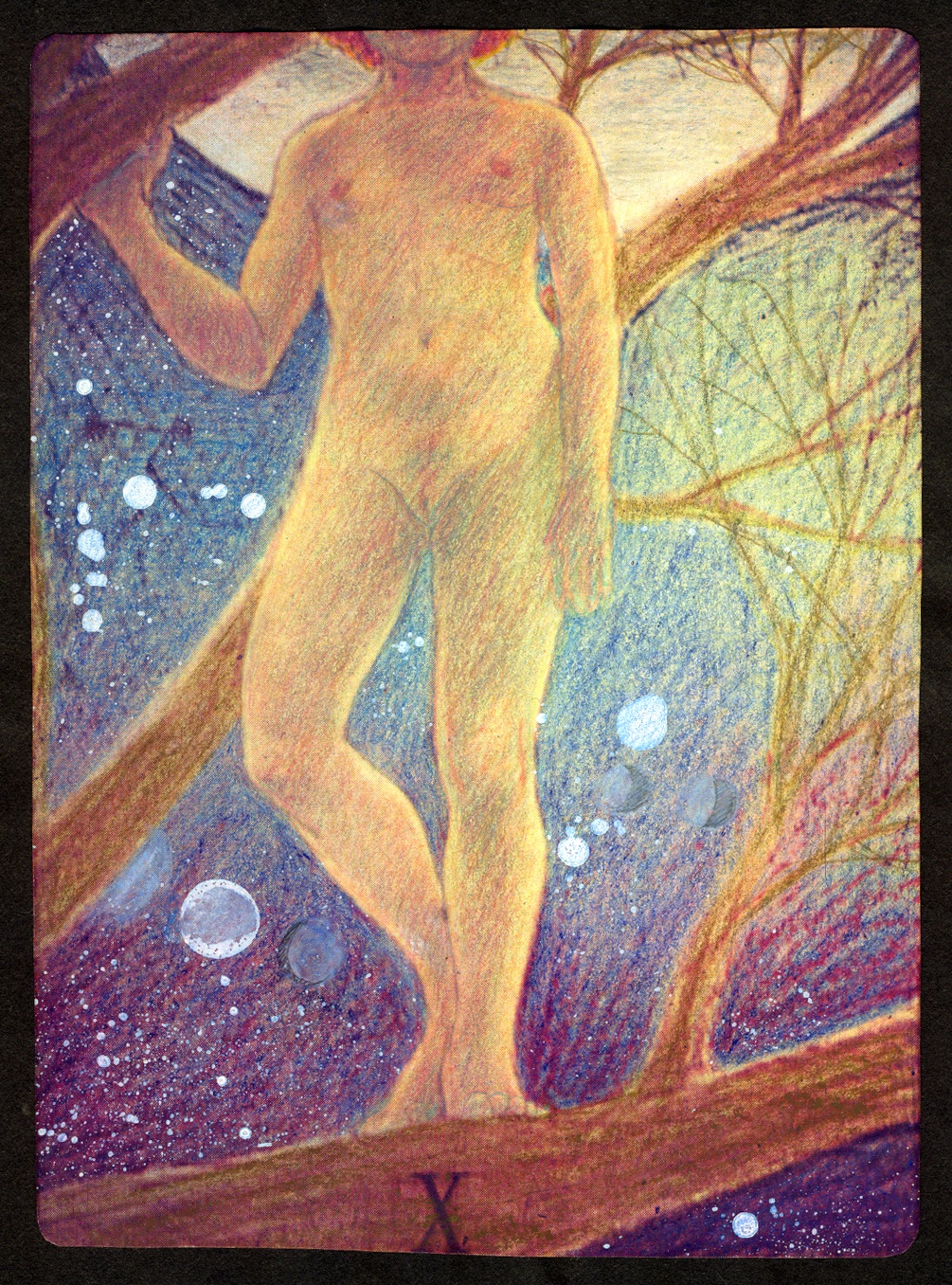
Ernest Dowson wrote The Pierrot of the Minute, a short play in verse, in October 1892; this work was commissioned by the American actor-poet William Theodore Peters. It was published in final form by Leonard Smithers in 1897.
Pierrot goes to a temple in search of Love. As the night falls, he sinks into sleep, but he is awaken by the kiss of a Moon Maiden, who tells him that he can love her for one night, but in return she will own his heart for the rest of his life:
Mortal, beware the kisses of the moon!
Whoso seeks her she gathers like a flower—
He gives a life, and only gains an hour.
He lets himself be tempted. She tells her nymphs:
Watch, and forget all weary things of earth,
All memories and cares, all joy and mirth,
While my dance wooes him, light and rhythmical,
And weaves his heart into my coronal.
Music, more music for his soul’s delight:
Love is his lady for a summer’s night.
He asks her a kiss, she bends forward and their lips meet. But her kiss is icy:
Cold are thy lips, more cold than I can tell;
Yet would I hang on them, thine icicle!
Cold is thy kiss, more cold than I could dream
Arcturus sits, watching the Boreal stream:
But with its frost such sweetness did conspire
That all my veins are filled with running fire;
Never I knew that life contained such bliss
As the divine completeness of a kiss.
He asks her to teach him love, but she warns him again that she will own his heart for the rest of his life:
Moon-kissed mortals seek in vain
To possess their hearts again!
They continue their conversation about love. She says that the moon rules over love, and her maidens visit mortals in their sleep, taking their hearts through blissful dreams:
Often I watched my sisters take their flight
Down heaven’s stairway of the clustered stars
To gaze on mortals through their lattice bars;
And some in sleep they woo with dreams of bliss
Too shadowy to tell, and some they kiss.
But all to whom they come, my sisters say,
Forthwith forget all joyance of the day,
Forget their laughter and forget their tears,
And dream away with singing all their years—
Moon-lovers always!
As soon as the day dawns, Pierrot falls asleep again and the Moon Maiden, bending over him, says:
Music, my maids! His weary senses steep
In soft untroubled and oblivious sleep,
With mandragore anoint his tirèd eyes,
That they may open on mere memories,
Then shall a vision seem his lost delight,
With love, his lady for a summer’s night.
Dream thou hast dreamt all this, when thou awake,
Yet still be sorrowful, for a dream’s sake.
I leave thee, sleeper! Yea, I leave thee now,
Yet take my legacy upon thy brow:
Remember me, who was compassionate,
And opened for thee once, the ivory gate.
I come no more, thou shalt not see my face
When I am gone to mine exalted place:
Yet all thy days are mine, dreamer of dreams,
All silvered over with the moon’s pale beams:
Go forth and seek in each fair face in vain,
To find the image of thy love again.
All maids are kind to thee, yet never one
Shall hold thy truant heart till day be done.
Whom once the moon has kissed, loves long and late,
Yet never finds the maid to be his mate.
Farewell, dear sleeper, follow out thy fate.
She withdraws and one hears a voice singing from behind:
THE MOON MAIDEN’S SONG.
Sleep! Cast thy canopy
Over this sleeper’s brain,
Dim grow his memory,
When he awake again.
Love stays a summer night,
Till lights of morning come;
Then takes her wingèd flight
Back to her starry home.
Sleep! Yet thy days are mine;
Love’s seal is over thee:
Far though my ways from thine,
Dim though thy memory.
Love stays a summer night,
Till lights of morning come;
Then takes her wingèd flight
Back to her starry home.
Source of the poem: The Pierrot of the Minute (A dramatic phantasy in one act), in Ernest Dowson Collected Poems, R. K. R. Thornton with Caroline Dowson (editors), University of Birmingham Press (2003); see also The Poems and Prose of Ernest Dowson, With a Memoir by Arthur Symons, Project Gutenberg Ebook.
This is a revised version of a post previously published on Agapeta, 2015/07/26.

